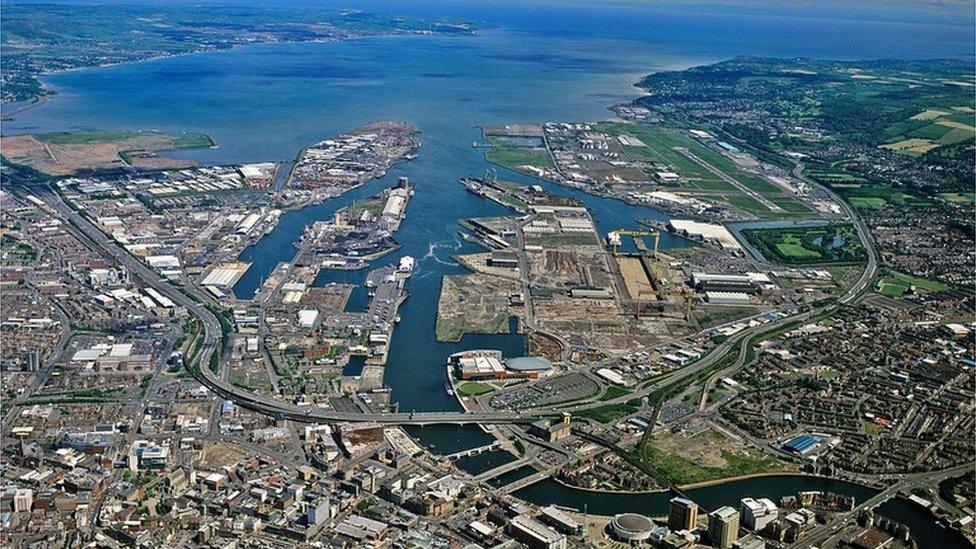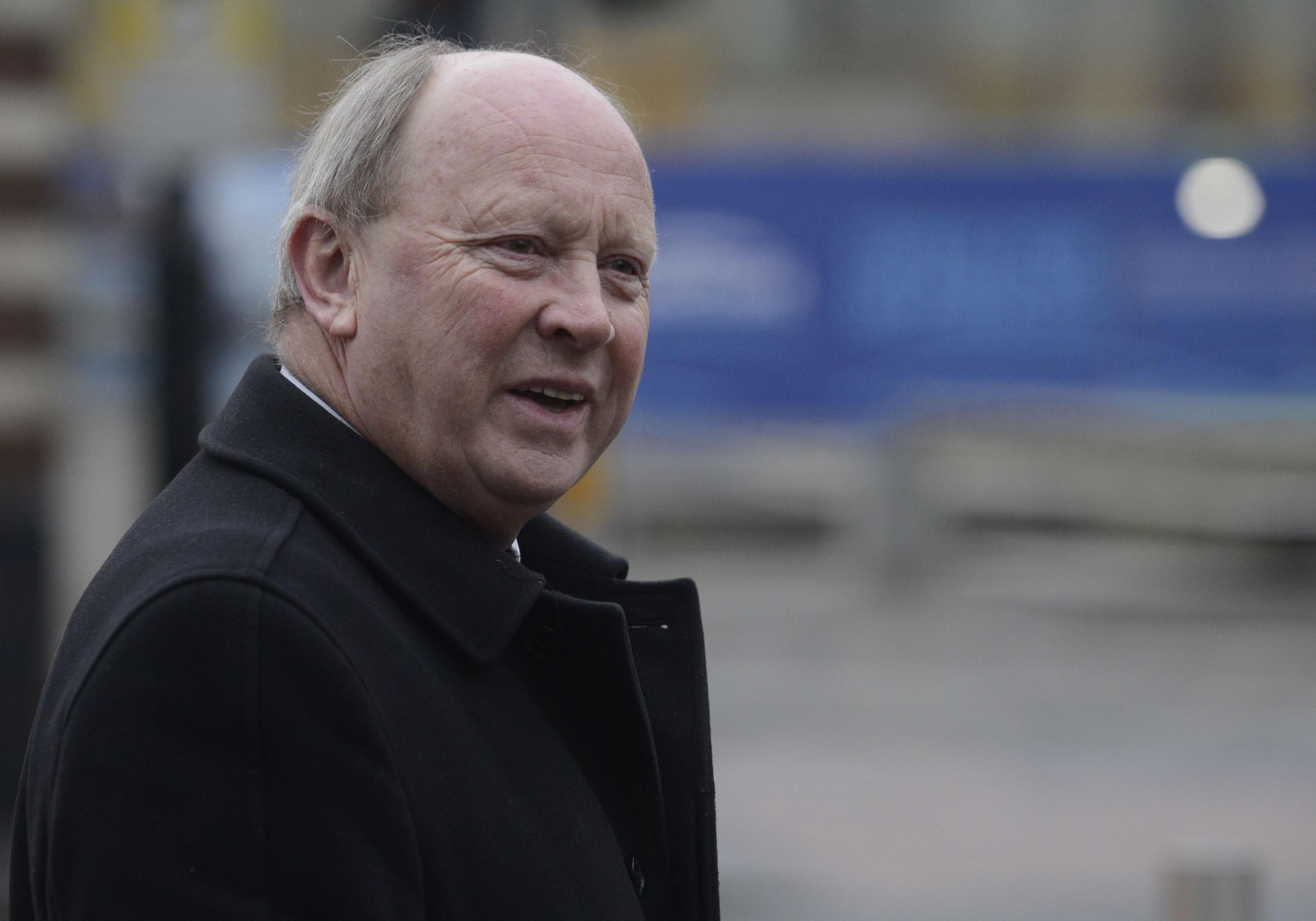Brexit highlights historical unionist fears
- Published

Could bar codes be scanned at Belfast Port?
The technology might be modern, with the EU's Chief Negotiator Michel Barnier talking about officials scanning bar codes on lorry containers as they roll on or off Irish Sea ferries.
But the political fears which underpin unionist anxiety over the prospect of new regulatory checks on goods moving between Northern Ireland and Great Britain have been around for decades.
Is Northern Ireland as British as Finchley, as Margaret Thatcher famously pronounced? Or as British as Somerset, as Jacob Rees-Mogg told me at the recent Conservative conference?
Wind back to the days of direct rule in the 1980s and you could find unionists debating whether full integration with the UK or the restoration of devolution at Stormont would be the best way to administer Northern Ireland.
North Down's Bob McCartney was the most articulate proponent of full integration.
Fast forward to the late 1990s and the devolutionists comprehensively won that argument.
Republicans dropped their historic opposition to Stormont, and the devolved executive became the vehicle to move Northern Ireland on from its conflict.
Stormont got responsibility over matters like health and education. But over time pragmatic arguments were made to extend the transfer of other powers across the Irish Sea.
Tax debate
Both main unionist parties, for example, jumped on board the bandwagon campaigning for the devolution of corporation tax.
The local business community urged them on, arguing this was a sensible response to the competition they faced from firms south of the Irish border paying far lower taxes.
However there were voices crying in the wilderness. The TUV leader Jim Allister warned that devolving corporation tax could be the "thin end of the wedge".

Jim Allister opposed devolution of tax powers
His logic was that if more and more powers were transferred from London to Belfast, one morning unionists might wake up and find that - for all practical purposes- their kingdom wasn't united anymore.
Understandably Irish nationalists looked at it from the other end of the telescope.
Whether it was corporation tax, air passenger duty, or policing and justice powers, they concluded that the more responsibilities which could be levered away from London the better.
So now we are focussing on the regulation of goods.
The DUP is increasingly fearful that Theresa May's "no border down the Irish Sea" pledge cannot be taken at face value.
That's because they remember that Margaret Thatcher's "British as Finchley" comment in 1981 was followed four years later by the Anglo Irish Agreement, a pact unionists viewed as a betrayal.
Hence the level of concern, no matter how much Michel Barnier might try to "de-dramatise" his proposed checks - because such checks will only be necessary if the UK concedes that Northern Ireland is not quite as British as either Finchley or Somerset.
Double standards?
The DUP's critics argue this is a case of double standards. They point out that unionists have been happy to preside over radically divergent rules when it comes to social issues like abortion and same sex marriage.
So why should the monitoring of containers heading towards Northern Ireland's supermarkets be their red line?
Stormont's pro-remain politicians regard the EU's latest ideas as a "win win" scenario for Northern Ireland businesses - an argument the DUP rejects.
As in the case of corporation tax, there were voices crying in the wilderness over Brexit. But this time from rather different points on the political spectrum.

Arlene Foster has spoken of 'blood red lines'
They didn't get much traction in the UK-wide debate, but during the 2016 referendum campaign the former prime ministers Tony Blair and John Major (both key players in the peace process of the 1990s) and the Ulster Unionist leader Mike Nesbitt all warned that Brexit could endanger the stability of the U.K.
As recent research from Edinburgh and Cardiff universities appears to indicate, external the debate over Brexit has unleashed a sense of English nationalism which may have profound implications for what looks like an increasingly fragile UK.
So is the threat to Theresa May's "precious union" posed by Michel Barnier's bar code scanners, as the DUP fear?
Or as Messrs Blair, Major and Nesbitt may argue, was it Brexit itself which did the damage?